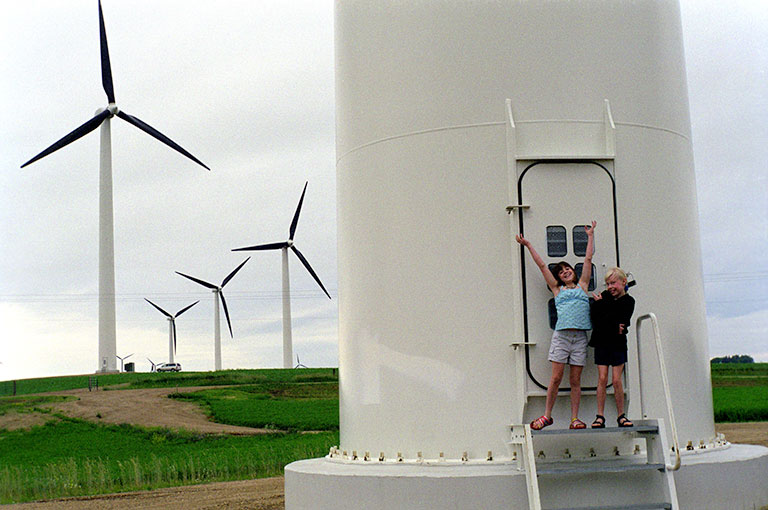Solar and Wind: What About Subsidies?

In any case, both are going away.
While much could be said on this one way or the other, let’s just leave this with the unassailable:
• If government has any legitimate role to play other than the immediate production of the safety of its citizens, it is to foster social goods and hamper social ills.
• The phasing out of fossil fuels in favor of renewables is most assuredly a social good, while the accumulation of toxins and greenhouse gases in our atmosphere is clearly a social ill.
Another couple of points worth thinking about:
• Subsidizing oil production, a 90-year old business that is the single wealthiest industry in the history of humankind, is a dubious enterprise at best.
• Subsidies for wind and solar choke off, perhaps unfairly, the potential for success of other technologies, e.g., geothermal, biomass and hydrokinetics. But when is it time to “fish or cut bait,” when so much is at stake vis-a-vis the existential threat before us?
In any case, enjoy.

The fact that this is phasing out is just disgusting… but it could be an actual opportunity.
Trump and the GOP are monsters… ruthlessly wrecking everything in the pursuit of short term gain. It’s revolting, and despicable. That’s pretty well understood.
But since the targeted wind and solar subsidies are phasing out, it would be a good time to think about what they did right and what they did wrong, when considering what to do with the next administration (when sanity returns to DC).
The subsidy should be based on projected emissions offsets, not project costs. In so doing, you set a value on the social good, rather than a value on the specifically chosen piece of tech.
In this, there is no reason not to give massive subsidies to a coal or natural gas power plant that installs higher-end scrubbers on their smokestacks to remove more black carbon, NOx, SO2, PAH’s, and heavy metals. Yes, they’re still a company that desperately needs to phase out, but while they’re operating it would be good for society for them to pump out only CO2, rather than CO2 AND far worse stuff…
In this, a rooftop solar panel installed on a house in Texas would give a greater subsidy than one installed on a house in Seattle. Because of course it should. In Seattle, the power is mostly hydro and highly efficient gas with great emissions controls on the smokestacks… and in Texas most of the energy is either coal or lower efficiency gas with poor emissions controls on the smokestacks. Also, a panel on a rooftop in dry-sunny Texas will easily produce 2-3 times the energy as a similar panel in ever-cloudy Seattle.
If the goal is emissions control, we should treat it as such. Insulation is the best bang for the buck, and everyone should do it. If that lowers their consumption, thus lowering their emissions, and lowered emissions are the goal… why should insulation not get subsidies? Why not geothermal heat exchangers… or Brian’s grey-water shower heat exchangers? The idea of picking and choosing has always been nonsense, so when we rebuild after this catastrophe of an administration… we should stop with the picking and choosing.
The second thing that should change is that the tax credits should be refundable. It’s absurd that we say we want people to go solar, or that we want people to install wind or geothermal… but the tax credits are not refundable.
A poor family will never pay enough in taxes to justify buying a solar power system for their roof. So they won’t benefit. But the wealthy family DOES benefit. That’s stating straight-out that the goal is to help wealthier families, or more profitable businesses… not to help with emissions mitigation. That clearly MUST change when we rebuild as well.
Great points all around. We’ve discussed your idea about subsidies based on emissioins reductions before, and I suppose you’re right, though does lead to the paradoxical conclusion that the use of coal should be perpetuated; it’s a conundrum.
You’re certainly right about poor people who pay virtually no taxes.
And small businesses that have low profits.
😉
As for the idea of coal continuing… that is going to happen. This wouldn’t be a mandatory thing, it would be a subsidy. No power company would undertake a capital expense of that magnitude without consideration… and they would only do so for the plants that would still be operating ten+ years from now. But FOR those plants, it’s absurd to not encourage a reduction in emissions of harmful pollution just because you would prefer they go away…
They will go away, just not soon. The market will gradually edge them out, but while they are there, it’s better for us all that they pollute as little beyond CO2 as possible.
🙂
I’ve come to like your thinking.
US costs for residential solar are WAY higher than in other parts of the world. Much of the cost relates to permitting, regulation and inspection with thousands of local jurisdictions each having their own rules. Adopting federal regulations somewhat similar to those in the UK, where in most cases, planning permission is not required, and registered accredited installers using accredited product are trusted to install without inspection (except for occasional spot checks) could bring the installed cost of solar down to similar levels to Europe and Australia – more than offsetting the value of the tax benefits.